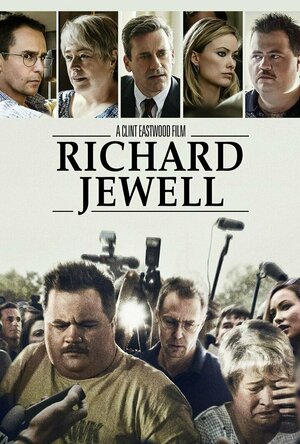
BIDV Smart Banking
Finance and Utilities
App
BIDV Smart Banking là ứng dụng thông minh giúp khách hàng giao dịch với ngân hàng...
Dianne Robbins (1738 KP) rated Merrily We Go to Hell (1932) in Movies
Sep 3, 2020 (Updated Sep 3, 2020)
Sylvia Sidney plays Joan Prentice, the daughter of the president of Prentice coffee and Fredric March plays Jerry Corbett, a newspaperman who wishes to be a playwright. They meet at a society party where she is trying to ignore the advances of a very handsy older man and he is on the terrace drunk and drinking even more. She somehow finds him charming and he finds her "swell." They make a date to meet up again and romance follows. I mean, allegedly follows though it seems like a huge plot point to me what they see in each other and what kind of substance their relationship has. I've never been a very romantic person but even this seems terribly lacking to me.
Skeets Gallagher plays the sidekick Buck and he's worth his weight in gold. He a drinking buddy and scenes with him often start with the camera panning him tap dancing from behind. He's sweet, sympathetic, charming, and adorable and brings so much life to the role and film. Florence Britton plays the female sidekick to Fredric March's Jerry Corbett and is a bold lady, and kind. She and Buck are so much fun and not sloppy drunk like Corbett. I would much rather watch a movie with the two of them.
Sylvia Sidney, the female protagonist was bold and determined. After her husband cheats on her with his former wife, she goes out to have a little fun, too. She gets tired of her husband's constant drunkenness and leaves him. He seems to come to his senses at the end of the movie and goes to her. Spoiler alert: she is in the hospital having delivered their baby. He didn't know she was pregnant and only learned about the baby after reading the birth announcement in the newspaper. This is a premonition of things to come once the code comes into play as any sin must be paid for with a person's ruin or death. However, it ends on a happy note that their marriage will be better and that they are hopeful for the future.
* Watch for Cary Grant in one of his earliest roles as the male lead in the period drama play towards the end of the film.
Ivana A. | Diary of Difference (1171 KP) rated The Die of Death in Books
Oct 2, 2020
Philip is a good boy, but he ends up in Hell by mistake. And on top of that, he is chosen to be the Devil’s Apprentice. Even though he’s always be good, he is not good at being bad. A danger occurs in Hell and the Devil is dying. When Philip solves the mystery, he returns on Earth to continue his normal life.
But when the future of the underworld is threatened once again, they need Philip’s help. Death’s Die has been stolen, the one that decides when each person is going to die. Because of that, immortality is now spreading. Philip goes back to hell to solve the mystery, but during his adventures he discovers some horrible truths…
I really have no clue why it took me quite a long time to get to the second book, but I am so happy that I finally got to read it, and endeavour this story.
It is so unique and I am in love!
The chapters just flow through – even better than the first book – and within minutes you are captured in this world, full of good and evil, or decisions being made that question your moral time and time again, in a very understandable way for young adults as well.
The story of the Die of Death, and the scenes related to it were my favourite. I love what Kenneth created, and how Death rolls a dice at the beginning of each life, that determines how many years each person gets to live. I loved how everyone had their own hourglasses and the mysterious snake that guards them.
We get to see the Purgatory in this book too. Only for a moment, but it was wonderful to read about it. It reminded me so much of Dante’s inferno, and I loved it! There was also the theory of reincarnation, told by a dog – a scene that was quite powerful! We even got a glimpse of Heavan, a few mentions here and there, that made me want to know more.
I like Philip as a character, but Satina was my hero! She has the best comment on everything, and they make such a good team with Philip. Also – did you know Hell has its own newspaper? It’s called Hell Times! So cool!
I loved this book. I cherish it. And I can’t wait to see what happens next and I highly recommend it to you – especially this month, as it’s Spooky October already!

The Economist Espresso
News
App
• A morning briefing from the editors of The Economist • Brand new content delivered 6 days a...
BankofMarquis (1832 KP) rated Richard Jewell (2019) in Movies
Feb 2, 2020
It could have used some life to be injected in it.
Based on the true events of the pipe bombing in Centennial Park in Atlanta during the 1996 Summer Olympics, RICHARD JEWELL tells the story of...well...Richard Jewell - the Security Guard who was hailed as a hero for warning people about the bomb, saving many lives, while also being listed as the #1 suspect in the bombing.
Director Eastwood and Writer Billy Ray do not spend much time making the audience guess at to whether or not they think that Jewell committed the crime (he did not - the real bomber was caught in 2006), rather they spend their time showing a person who's being railroaded by the FBI and who's life is caught up in the scramble by the press to "get the story." Again...this would be more interesting if Director Eastwood would show some sort of urgency to the proceedings, but this film is paced on an even keel from start to finish, and I never got caught up, emotionally, in the events that were transpiring in front of me.
Paul Walter Hauser (Shawn Eckhardt in I, TONYA) does a "fine enough" job as the titular character - but it isn't anything special and since the viewer is spending almost every scene with him "fine enough" isn't good enough. Adding to my disappointment are the portrayals by John Hamm (as an FBI Agent) and Olivia Wilde (as a Newspaper Reporter). Both of these performances border on caricature (especially Wilde's performance). I'm disappointed in Eastwood for letting this happen.
Injecting "some" life into this film is Kathy Bates - who was nominated for an Academy Award for Best Supporting Actress for her portrayal of Richard Jewell's mother - and she delivers better than the others...but not "Oscar Worthy". She does nail her "Oscar moment", but I don't think the script gives her much else to do.
The brightest spot in this film - by far - is the portrayal of Richard Jewell's lawyer, Watson Bryant, by Sam Rockwell and the performance of Nina Ariande as Bryant's Secretary/Girlfriend. If anyone should have been nominated for an Oscar for their performance in this film, it is Rockwell - his is the best one in the film and Ariande plays off him wonderfully well. I sat up a little taller in my seat whenever these two had a scene together.
But that's about it. It's a pretty "meh" movie - professionally made and paced deliberately and mellowly - like Clint Eastwood. But not like an Oscar contending film.
Letter Grade: B-
6 stars (out of 10) and you can take that to the Bank(ofMarquis)

Coupon Keeper 2
Shopping and Lifestyle
App
Coupon Scanner, Organizer and Reminder, this All-in-One coupon tracking app will make your life...

Retale - Weekly Ads & Coupons
Shopping and Catalogs
App
Find the best deals and coupons in your area! Retale lets you view hundreds of digital weekly ads...

The Guardian daily edition
News and Magazines & Newspapers
App
The Guardian and Observer daily edition beautifully re-imagines the newspaper for the iPad. Each...

Snap2PDF - Scan Documents & Share Searchable PDF
Business and Productivity
App
* The Best Document Management App * • Snap2PDF secured a spot among the Top 10 apps in the...

In Sight - Norway+ (with offline maps)
Travel and Navigation
App
What is the name of the mountain you can see in the distance? What are the lakes you see in front of...


